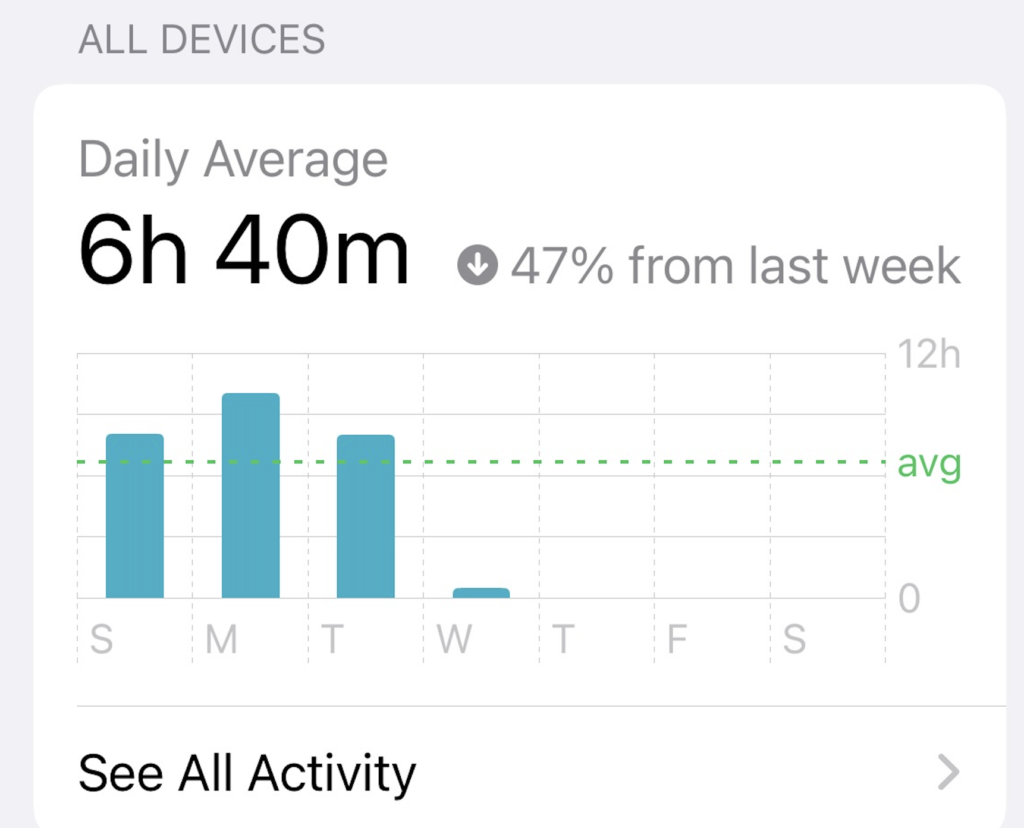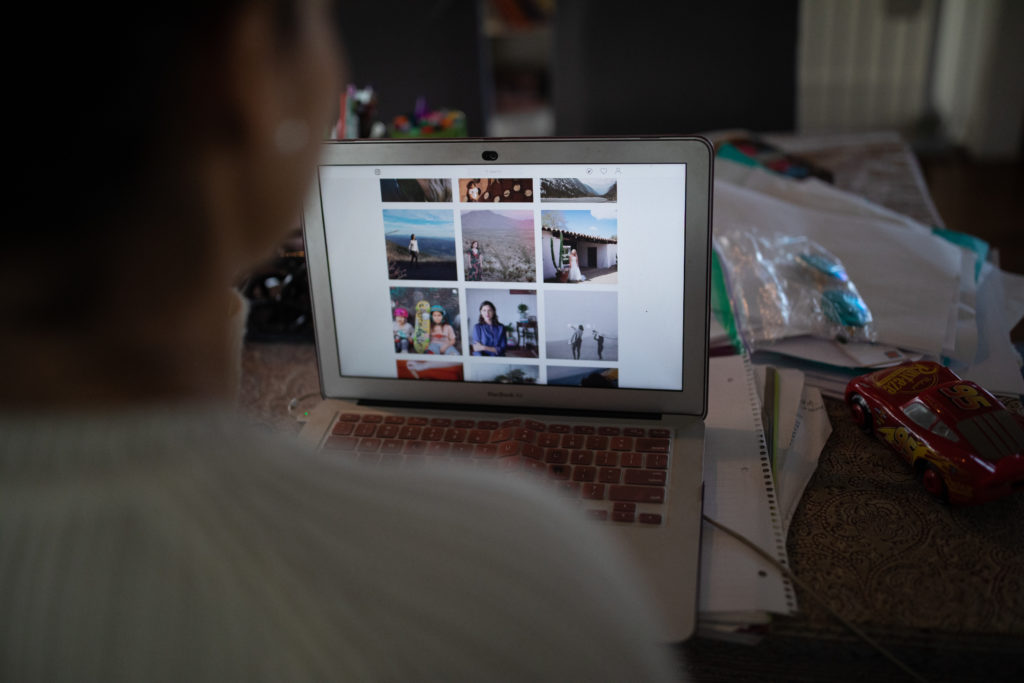“I’m on my phone THIS much?” This realization after digging up my latest Screen Time report showing over 6 hours of usage a day. Just on my phone. The discovery was inspired by a mindfulness lecture I had attended over the weekend. During it, the learned speaker discussed how we can more positively feed our minds and exert more discipline on what expose our minds to – including content on our phones through a digital detox.

As a technology blogger, journalist and lover of gadgets from a young age, devices enable me (and likely you reading this) to work productively and live more precisely. Screen Time reports validate just how attached, or addicted, we are to our devices. Americans spend at least 7 hours daily on our devices, according to DataReportal. A Pew Research study shows that while social media does not directly increase stress for users, it indirectly impacts stress by making users more aware of the occurrence of stressful events in the world.
Turning off our phones all week is impractical for most of us. Doing so could impact everything from knowing where our children are to our ability to earn. For many of us, our phones are the hub of our work. So when I tune into a podcast or stumble upon research on the topic of digital detoxing, they always felt inapplicable to me – until now.
Exploring the benefits of ditching your phone
What could you accomplish in your life if you only reduced screen time by an hour daily? That day’s lecture invited me to contemplate this. By creating discipline around my technology use, I can do more of what matters to me: have more time for myself, my family and my interests. For those of us striving to live more optimally or healthfully, we may already be paying more attention to things like our food, our sleep, our calendars and even our thoughts. So why do we allow ourselves to devour at a daily screen buffet when other parts of our lives are lived with more discretion? It seems that the technology discipline in my life is misaligned with the other parts.
The talk inspired me to reflect upon my lack of guardrails around technology -whether it is the mindless pick up of the phone over 100 times a day, doom-scrolling at night or avoiding being bored while on line at Peet’s. I have been researching practical ways put some up.
“Taking a break from technology not only frees up time, but has real mental health benefits.”
Cleveland Clinic
While most of us are reliant upon our gadgets and could never give them up entirely, there are ways to depend less on our gizmos, freeing up space for more mental clarity and even happiness. The Cleveland Clinic reports that the benefits of taking a break from technology can include:
- Sharper focus
- Less stress
- Better social interactions
- More control over your time

Ways to detox – moderately
As I explored the digital detox more, I learned that there are infinite ways to do one. It doesn’t require you to be offline for rest of the season and can start with something as simple as placing devices away from your access for a few hours. In fact, there are many ways to gently explore creating technology discipline in your life. Here are ones I particularly like:
- Choosing a day of the week to pull back on a specific digital behavior– this is where I am starting. I have chosen Sunday as a day I will avoiding checking social media, namely Instagram. What I have realized in my first experiment with this is how unconscious a habit this has become for me. Many times, I found myself mindlessly on Instagram without even realizing it. Once I did, I quickly closed the app and put my phone down
- Creating time limits via settings – both iOS and Android have settings that allow you to moderate the time spent on an app via time limits. Creating them creates the external reminder to step away
- Tracking your usage data – iPhone’s Screen Time and Google Android’s Digital Wellbeing allow you to your monitor time spent online and can even track how many times you pick up your phone daily (over 100 times, in my case). By tracking your behavior with data, you can better measure it and your progress. It is like weighting yourself or counting your steps to track your fitness. Knowing I pick up my phone almost 150 times in a day has generated new awareness about my actions and invites me consider not picking it up more often
- Limiting behaviors at night – it is well documented how doom scrolling and blue light can disturb sleep at night. Setting a cut off time of, for example, 8pm to disengage with your devices is an easy way to set limits. Consider moving your computer or tablet to a different room at night to make it easier
- Reducing exposure to negative content – Even if you decide not to limit access to your devices, you can detox from what type of content you access on those devices. Reality programming, the evening news or even YouTube can impact our self esteem or create comparison, as research shows. By changing the types of media we interact with, especially at night, we can enhance our mental health and well-being
- Turning off notifications – by disabling notifications on your phone, you begin to reduce the temptation to check and engage with the device
Whether you ditch your device for the winter or simply disable notifications at night over the weekend, creating reasonable and individualized boundaries with our gadgets can free up time, mental space and open the pathway to more connection in our lives -at a pace that works for you.